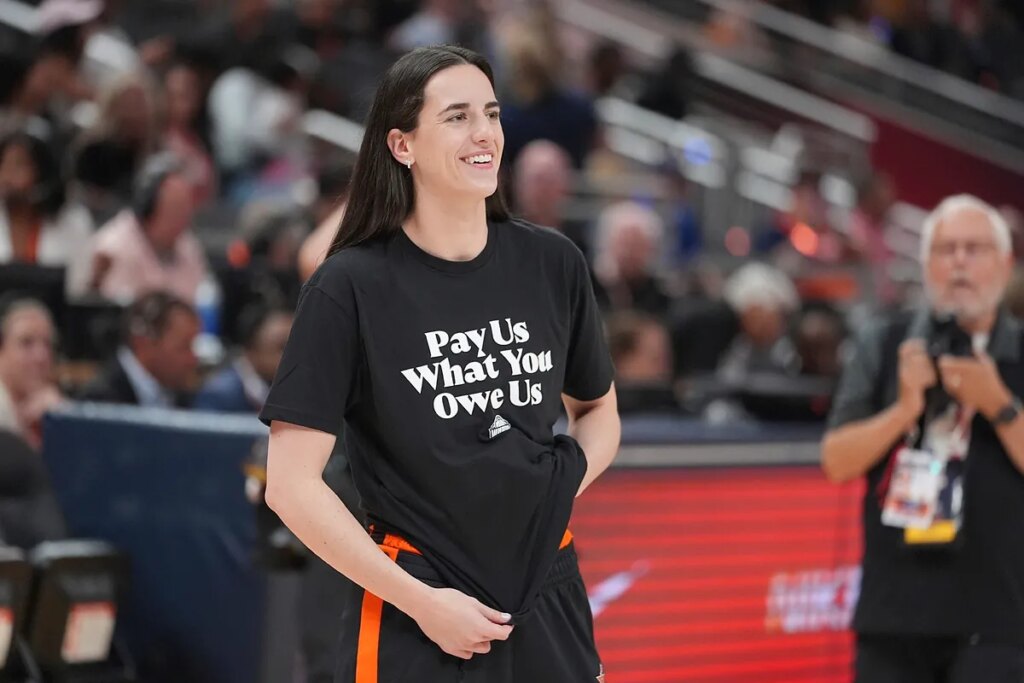As the 2025 WNBA AllStar Game approached in Indianapolis on Saturday, league superstars laced up not just for friendly competition, but to stage a pointed protest: their black warmup shirts bore a bold message-“Pay us what you owe us.”
This wasn’t halftime drama or viral flair. It was a deliberate demand during tense negotiations over a new collective bargaining agreement (CBA), signaling widening frustration between the league and the players’ union.
Commissioner Cathy Engelbert, facing a charged atmosphere, described Thursday’s meeting involving over 40 players and league stakeholders as “productive” and “constructive,” emphasizing the shared desire to establish a CBA that boosts salaries and benefits while maintaining team profitability.
Yet players and representatives responded less enthusiastically, with many dismissing the discussions as a “wasted opportunity,” noting the league only released a counterproposal five months after initial union demands.
The crux of the dispute-revenue sharing and equitable pay
At the heart of the impasse is a clash over how to divvy up the windfall from the WNBA’s recent growth.
A landmark 11-year, $2.2 billion media rights deal set to start in 2026, along with substantial expansion fees (each new franchise paid ~$250 million), underscore the league’s rising revenues, yet players argue their compensation hasn’t kept pace.
Nneka Ogwumike, WNBPA president, criticized the league’s initial response as fixed around salary caps and starkly misaligned with player expectations.
Engelbert countered that revenuesharing remains a live issue and pledged the next deal would include “a much more lucrative” model.
Meanwhile, Indiana Fever rookie sensation Caitlin Clark, sidelined by injury and on an AllStar stage, highlighted the pay disparity between her lucrative endorsement deals and a modest base salary (around $78,000 for the 2025 season), bluntly stating:
“We should be paid more.” She added, “that’s something that we’re in the room advocating about”.
The protest shirts reflected this broader sentiment, with WNBA All-Star captains like Napheesa Collier also underscoring the centrality of salary and revenue-sharing demands.
Offcourt, tensions simmered even as All-Star festivities continued. On Friday night, WNBA icons like Sabrina Ionescu and Natasha Cloud stole headlines.
Cloud won the skills challenge, and Ionescu shared prize money with rookie Sonia Citron.
That momentary unity with the league hierarchy, illustrated by Commissioner Engelbert celebrating with players at events, offered a glimpse of goodwill.
But it didn’t obscure the urgent financial issues at play.
As the current fiveyear CBA nears expiry on October 31, the clock is ticking.
Without resolution on rules governing expansion drafts, free agency, and player rights, the offseason could bring a work stoppage, potentially derailing plans tied to the expansion teams in Toronto and Portland.
Engelbert, however, expressed confidence negotiations would wrap in time: “I’m optimistic that we get something done that will be transformational”.
Read the full article here

